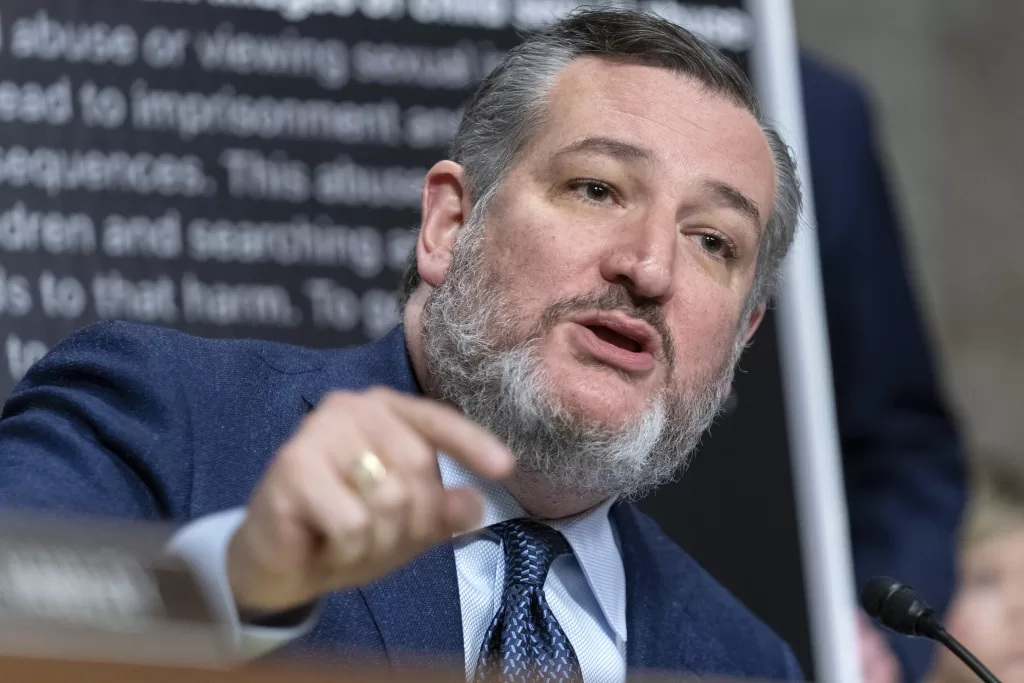Asked about the need for his amendment, Cruz told POLITICO that it’s about ensuring that political VIPs aren’t endangered as they pass through public spaces in airports. The draft says the extra security would be available to those who are currently or have previously “been the subject of a threat.”
There are “serious security threats facing public officials,” Cruz said Tuesday. “It’s important that we take reasonable measures to keep everyone safe.”
But the head of a nonprofit representing airport police said Cruz’s proposal would be “a burden to airport police agencies,” especially because federal budgets already do not adequately fund airport police units. It would also divert police from “crime suppression and security functions at airports, which is our fundamental duty,” said Kevin Murphy, executive director of the Airport Law Enforcement Agencies Network.
Instead, Murphy said, any escort duties for political VIPs should be the job of federal law enforcement.
The Transportation Security Administration, which would bear much of the onus for arranging the escorts, declined to comment on the legislation.
Cruz drew a wave of criticism for his jaunt to Mexico’s Caribbean coast, which occurred as his constituents were riding out a deadly winter storm, and swiftly returned to Texas after the photos became public. His penance included
handing out water bottles to storm-stricken residents, while
some Democrats called for him to resign. He later said he regretted the decision to leave for Mexico with his family, calling it “obviously a mistake.”
He was hardly the first politician to be tripped up by public scrutiny of travel they might otherwise prefer would stay private. In 2009, a reporter
confronted then-Republican South Carolina Gov. Mark Sanford at the Atlanta airport after he’d gone AWOL for six days, unraveling his office’s lie that he had been
hiking the Appalachian Trail. (Soon after, Sanford admitted he’d been
having an affair with a woman in Argentina.)
Political leaders’ air travels could become harder to decipher under Cruz’s draft language, which was obtained by POLITICO. The amendment would mandate that the TSA help “arrange” a security escort — which the provision says could be local law enforcement — for “the entirety of the time” the VIPs are at an airport. In addition, it would grant lawmakers under protective escort the ability to be screened without delay.
The proposal comes at a time when threats against lawmakers are on the rise. The Capitol Police, the force that protects Capitol Hill, said that
in 2023 it investigated about 8,000 threats against lawmakers, an increase of 500 over the previous year. And those threats tend to spike in election years, suggesting another bump is on the way.
The Capitol Police maintain a protective detail for congressional leadership on- and off-site, but most rank and file members don’t receive one unless they are the subject of a credible threat.
Though the draft tasks TSA with the escort duty, it gives the agency an out by specifying that it can simply “arrange” for the escort — including tapping local law enforcement, which would ultimately bear any cost burden in that instance.
The Metropolitan Washington Airport Association, the governing body that controls airports in the Washington, D.C., area, said it is “monitoring the legislative process” but otherwise had no comment.
But Annie Russo, chief political and congressional strategy officer for the trade group Airports Council International-North America, said such a mandate could put even more strain on airports.
In a statement, Russo noted that airports are facing “continued cuts to federal security programs that help support local law enforcement staffing,” and as a result “many airports do not have the resources that would be required to facilitate this sort of operation on a full-time basis.”
She said regardless, “we look forward to continuing to work with Senator Cruz to address his concerns.”
